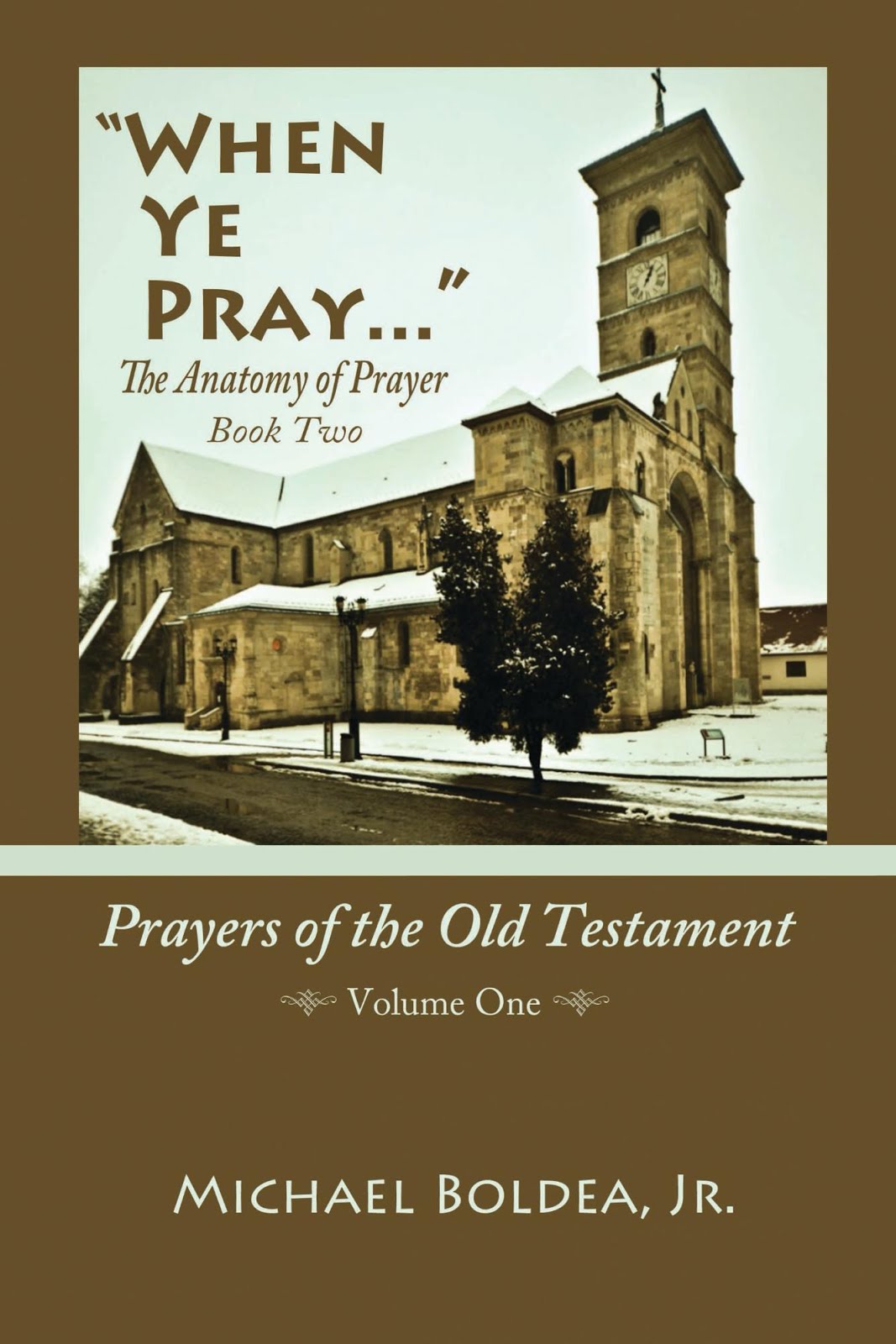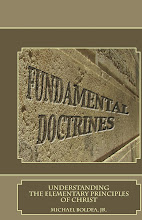It has been pointed out to me in recent months that disproportionate amounts of my writings center on the words of Paul the Apostle. It is no secret that I admire the wisdom of Paul. Also worthy of note, is that having authored fourteen of the books attributed to the New Testament, it is somewhat difficult to happen upon a passage, not in the four gospels that Paul did not pen.
Another one of Paul’s virtues that I admire greatly is his courage. If he was zealous and bold in his persecution of the saints before his conversion on the road to Damascus, he became doubly so in his defense of the gospel and his preaching of the Lord Jesus afterwards.
There are many instances throughout Paul’s writings, or Luke’s account of Paul’s ministry in the book of Acts that causes one to conclude that his courage was not his own, but rather it came from a divine source. Since Paul was by far the most educated of the Apostles, having been taught the law from early youth, he was able to stand before men of great earthly power and renown and proclaim the gospel of Christ unashamedly. There was no fear in him, and whether Paul stood before magistrates, rulers, priests or commoners, the message of the cross was presented in its entirety, holding nothing back for fear of offense or retaliation.
For Paul the transformation from persecutor of the gospel to preacher of the gospel was instantaneous, like flipping on a light switch. Paul went from having his heart darkened with hatred against those of the way, to having His heart alight with love for Christ, ever willing to put himself in harm’s way, to suffer persecution, to endure hardships for the glory of God, and the furthering of the gospel.
Acts 9:20-21, “Immediately he preached the Christ in the synagogues, that He is the Son of God. Then all who heard were amazed and said, ‘is this not he who destroyed those who called on this name in Jerusalem, and has come here for that purpose, so that he might bring them bound to the chief priests?”
Consider that ‘immediately’ refers to the time that lapsed between Paul having his sight restored, and being baptized, and preaching in the synagogues. After having been converted, Paul went to the synagogue, the selfsame place where everyone knew him as not only the man who had destroyed the followers of Christ in Jerusalem, but who had come to do the same in Damascus.
Paul could have come up with a multitude of reasons to put off his confrontation with those of the synagogues. He was after all a new convert, just a few days at the most. He was also ignorant of many things concerning Christ. He could have readily argued that first he had to go to Jerusalem, and learn everything he needed to about the birth, death and resurrection of Christ, then after having digested the information, set forth on such a taxing endeavor. Paul could have found an excuse not to preach Jesus, but he didn’t.
Paul had heard the voice of God, rebuking him of his sin. Paul had seen the Lord whom he was persecuting, because to persecute the followers of Christ is to persecute Christ Himself. Paul was stripped of his strength, self confidence, and sight, but Paul also understood through all these experiences the fundamental truth that Jesus was none other than the Christ, the Son of the living God, and his hatred was transformed into love. The rebel hands that sought to tear down the church, had now been commissioned the build it up, stone upon stone, for the glory of God.
With this newfound experience, and this foundational truth that Jesus is the Christ, he entered the synagogue and simply preached Him. Sometimes, to their detriment preachers and evangelists have a tendency to complicate the word of life. In order to be socially relevant, they water down the truth of Scripture, and in order to be friendly to seekers, they stop preaching Jesus. When we stop preaching Jesus, we stop preaching the good news of the gospel. When we stop preaching Jesus, we stop preaching the word of life. In the midst of the synagogue, Paul preached Christ, and Christ crucified. He could have preached on the Law of Moses, he could have taught on the old prophets, he was capable and had amassed enough wisdom and knowledge wherein he would have made an impression. However, Paul realized that the preeminent message must be Jesus and His Lordship, His sacrifice, and His redemption.
It took divine courage for Paul to stand in the synagogues; it took divine courage to stand before men who hated those of the Way because having been such a man he understood how readily they could resort to violence. So often we allow the fear of retaliation, opposition or rejection to keep us from preaching Jesus, and to this I say pray for divine courage, pray for a sovereign boldness to stand your ground when others have retreated, to preach Jesus when others have been silenced by fear.
Paul went to the one place where everyone knew of his reputation. These men saw him standing there, and I’m certain that before he began to speak, they were excited to hear him condemn the followers of Christ. Their excitement however turned to stunned silence when rather than condemning he encouraged his audience to follow after Christ.
By preaching in the synagogues Paul gave the greatest evidence of his newfound faith in God, of the sincerity and authenticity of his transformation both in mind and heart, and also of his decision to be a follower of Christ Jesus.
It was Paul’s first victory not only over those who would hate him and seek to take his life for the rest of his days, but also over his own emotions and fears. From that point forward, throughout the rest of his ministry Paul was indeed a fearless ambassador for Christ, leaning not on his own strength, leaning not on his own courage, but trusting in the divine courage that Christ provided by the power of the Holy Spirit.
I have a friend who recently came to Christ, who is by nature a very shy individual. He is currently attending college, working towards a bachelor’s degree in business, and one morning Leo called me very excited. At first I thought something had happened, but then he proceeded to tell me what had occurred the previous afternoon.
Apparently he was in one of his classes, and before the class started he pulled his Bible from his bag and began to read it. His professor saw this, and asked him to stay after class. The professor informed Leo that he didn’t care what he did in his free time, but while he was in his class he wasn’t supposed to read the Bible.
At this point Leo started getting excited and said, ‘I know it wasn’t me, I’m not that kind of person, but I looked him in the eye and asked, professor, do you know Jesus, do you know what He did for you?’
The professor waved him off, but what stayed with Leo was the fact that he had experienced divine courage. Throughout our journey on this earth may we as faithful children of God, walk in divine courage.
With love in Christ,
Michael Boldea Jr.
Thursday, July 2, 2009
Subscribe to:
Post Comments (Atom)










3 comments:
Amen! and may God bless Leo for his courage! That we would all speak up at every opportunity, the world would be a better place!
Mrs. Pugh
I just finished reading the Bible for the very first time and my reaction to Paul and his writings are very different from yours. I found all of his epistles the hardest to get through. What put me off initially was the fact that he started off all his epistles making sure we all knew he was an Apostle. None of the other Apostles did that. It was almost as if he was trying to convince us that he was an Apostle. Also, his writings were filled with what I like to call the ME-Me-Me factor where everything seemed to be about HIM and less about God. Then he proceeded to change some of God's laws which God warns us about over and over again in the Bible to be aware of. So it was confusing to me. In Revelations, God warns of false Apostles and I can't help but wonder if Paul isn't who God is warning us about. He claimed to be the person appointed to preach to the gentiles and we all know that today's Christian churches are filled with false doctrines. So I'm wondering if maybe he didn't start that whole process by changing God's laws and thus teaching false doctrine which would inevitably move all those who followed him AWAY from God. You have to admit that there has been a giant shift AWAY from God and what he preached in the Bible--times changed, laws changed (commandments). If we are told from the beginning (without reading the Bible) a set of rules that have changes in them and then follow them--we move in the opposite direction of God and goodness. I'm wondering what your take is on this. I could be way off base but I truly felt something off when reading Paul's words. They did not give me peace like the rest of the Bible did. I felt like I was reading the words of an imposter.
Karen
Karen,
It would seem that indeed we have differing views on the Apostle Paul. I will, in as short a time as possible try to make my case for Paul.
First of all, the reason he introduced himself as an Apostle of Christ in his letters to the varrying churches, as well as to Timothy, was because before his encounter with Jesus on the road to Damascus, Paul, formerly Saul had garnered a reputation for being the most ardent persecutor of the Christians. It was not in boasting that he introduced himself as an Apostle, but rather as a confirmation to those who read his letters that indeed he had been transformed, renewed, converted, and was now a follower of Jesus.
In terms of human intelligence, I believe Paul was Christ's most intelligent Apostles. He studied the law from early youth, in all likelyhood he had the first five books of the Old Testament memorized, and yes, some of his writing reflect his intelligence, but they are nevertheless wondrously glorious and divinely inspired writings.
If we were to remove the writings of Paul from the Bible, it would be a much smaller book, since he is responsible for some fourteen books of the New Testament.
Having been an ardent supporter, and follower of the law, Paul is perhaps best suited of all Biblical authors to reveal the excellence of grace, Christ, and the new covenant to both Jew and Gentile alike.
Yes, he was a passionate defender of grace, and he was a passionate defender of Jesus, but he had also been a passionate persecutor of those of the Way.
We see repeatedly his asertion that if he so desired, he had a right to boast, being circumcised on the eighth day, of the stock of Israel, of the tribe of Benjamin, a Hebrew of Hebrews; concernign the law, a Pharisee; concerning zeal, persecuting the church; concerning the righteousness which is in the law blameless. (Philippians 3:3-6)
Here was a man who would have been found blameless by the standard of the law, yet it is this selfsame man who said, 'But what things were gain to me, these I have counted loss for Christ.'
The excellence of the knowledge of Christ Jesus, surpasses that of the law, and here is the big idea, Paul desired to bef ound in Christ, not having his own righteousness which was from the law, but that which is through faith in Christ, that righteousness which comes from God by faith.
Yes, I do believe you misunderstand both the heart of Paul, and his continual desire to see men to come to faith in Christ.
As he so eloquently put it in 1 Corinthians, he determined not to know anything among them, except Jesus Christ and Him crucified.
I hope I've been able to shed some light on Paul, if you have any further questions, please don't hesitate.
With love in Christ,
Michael Boldea Jr.
Post a Comment